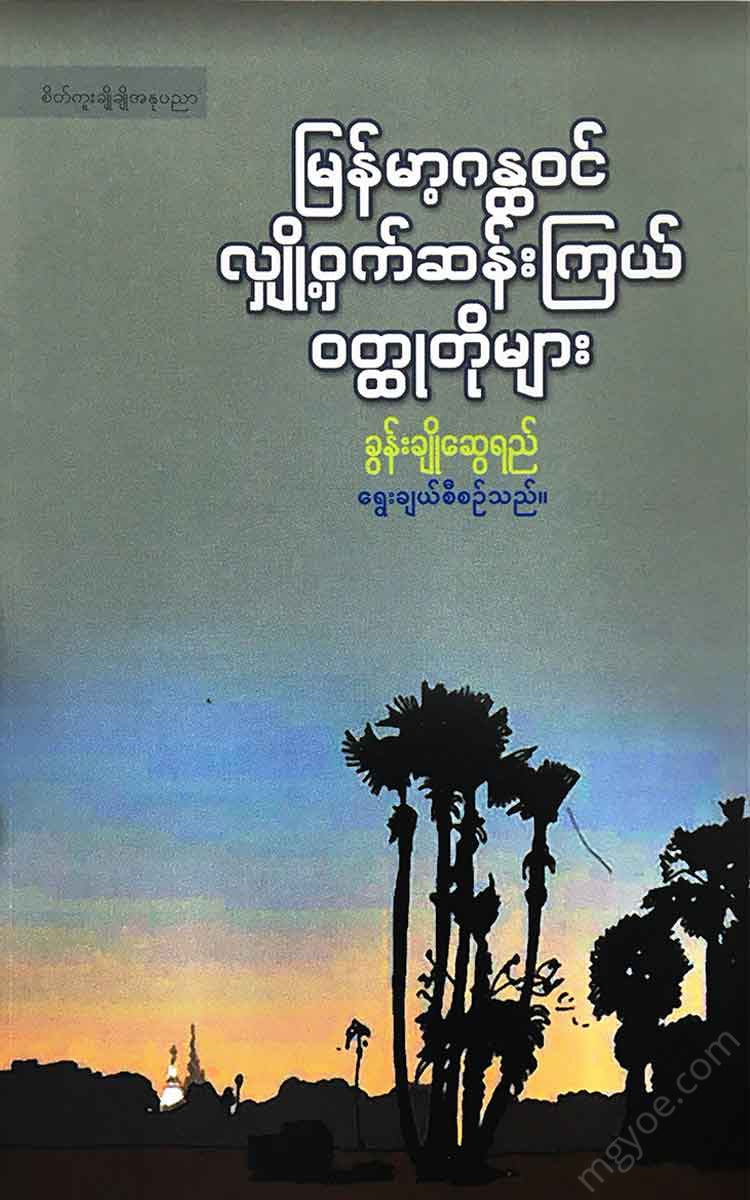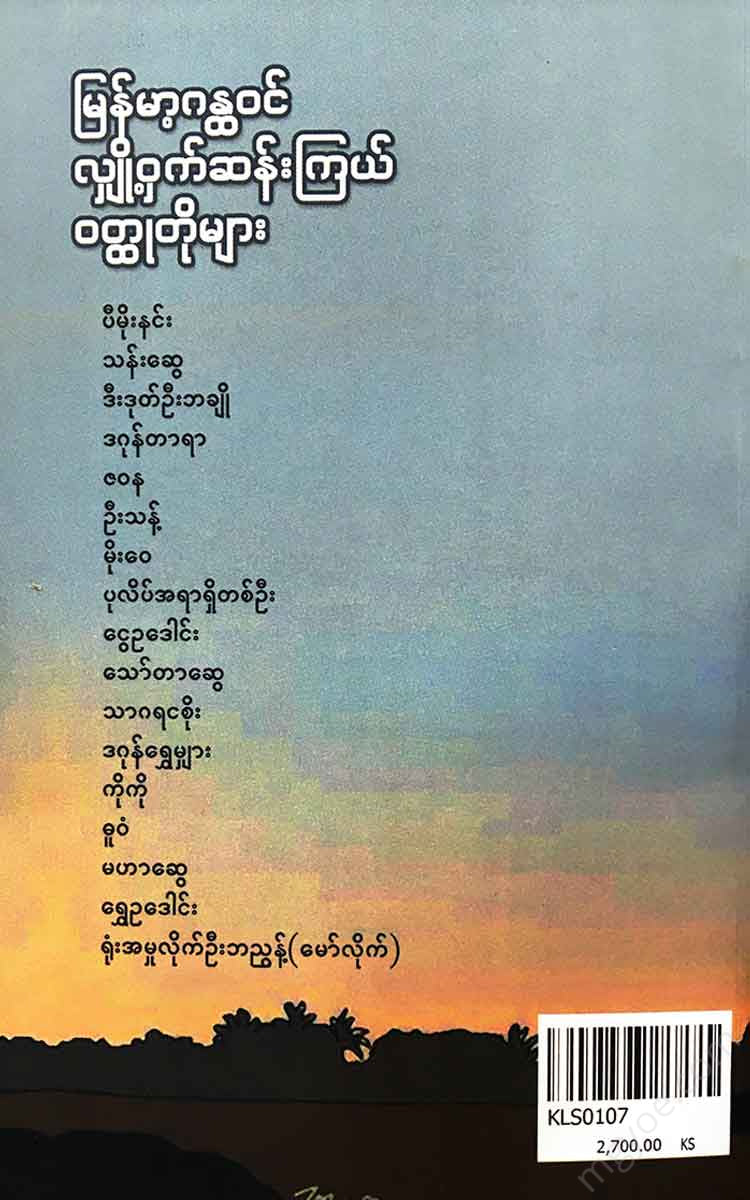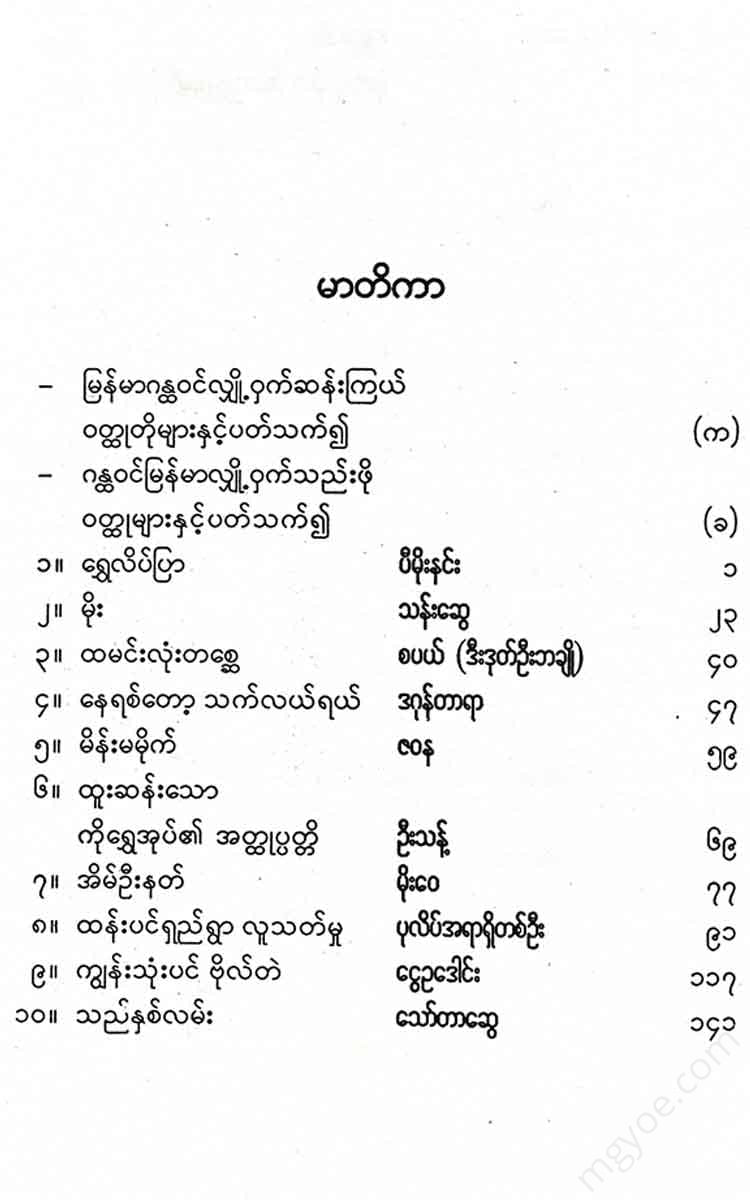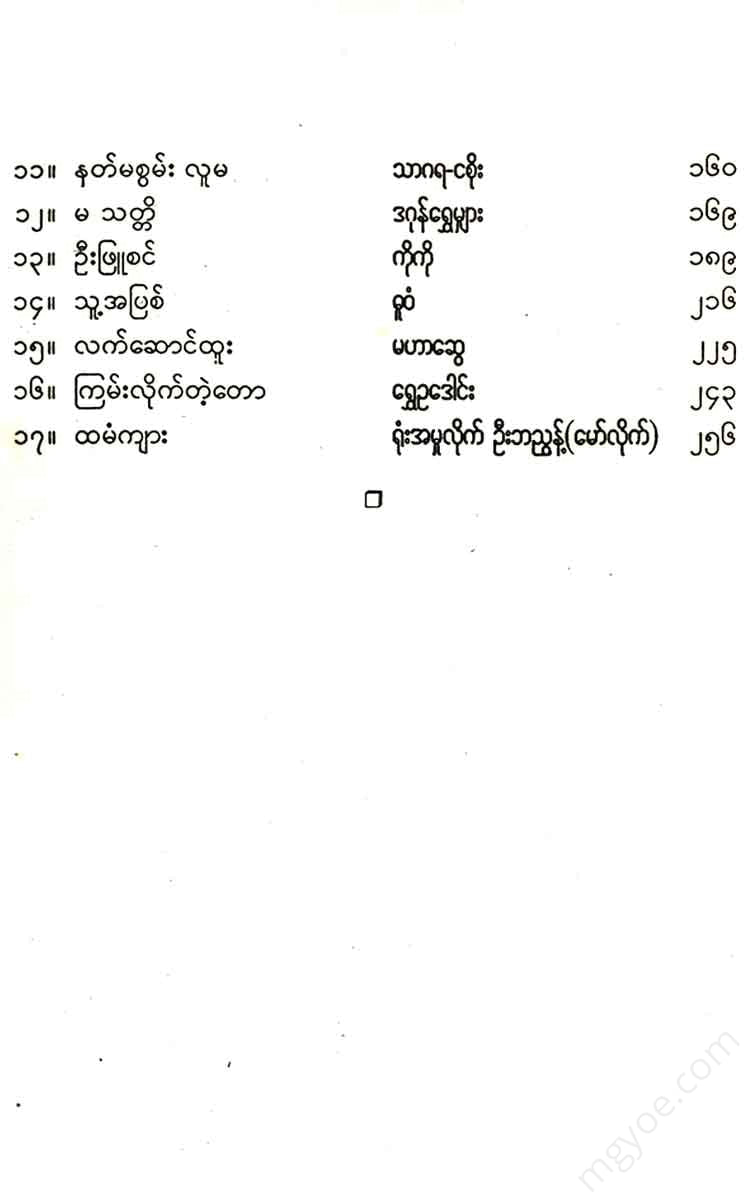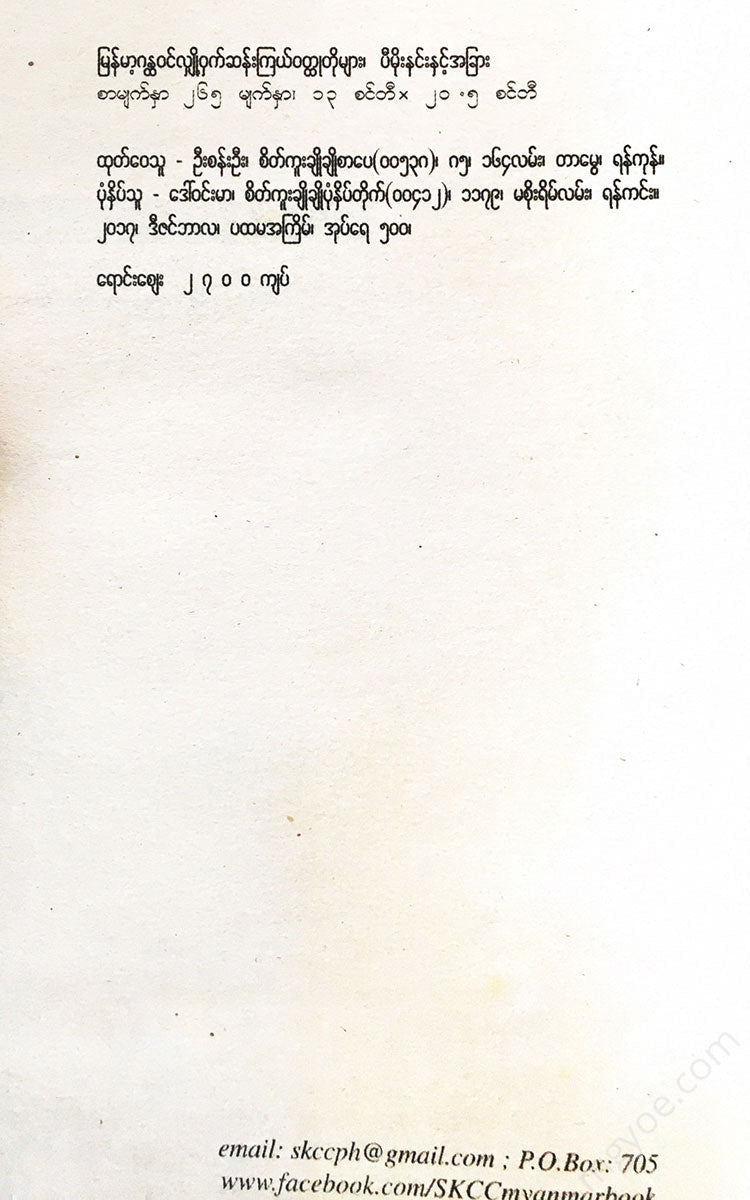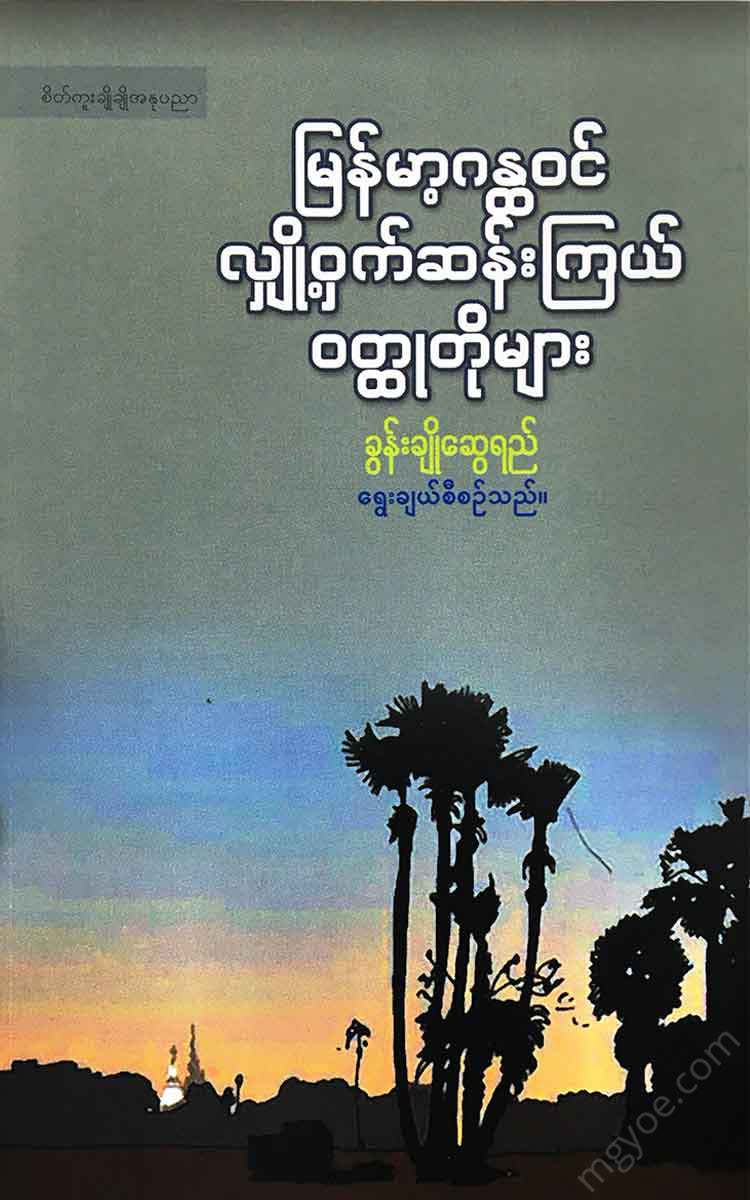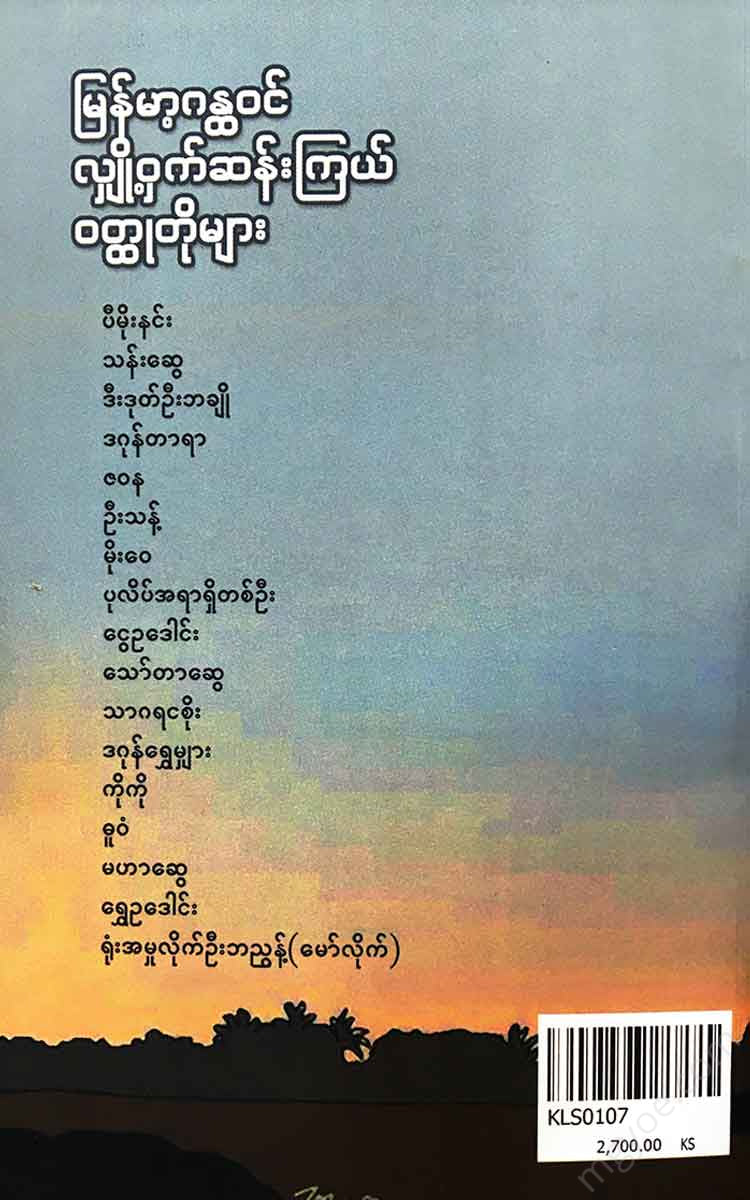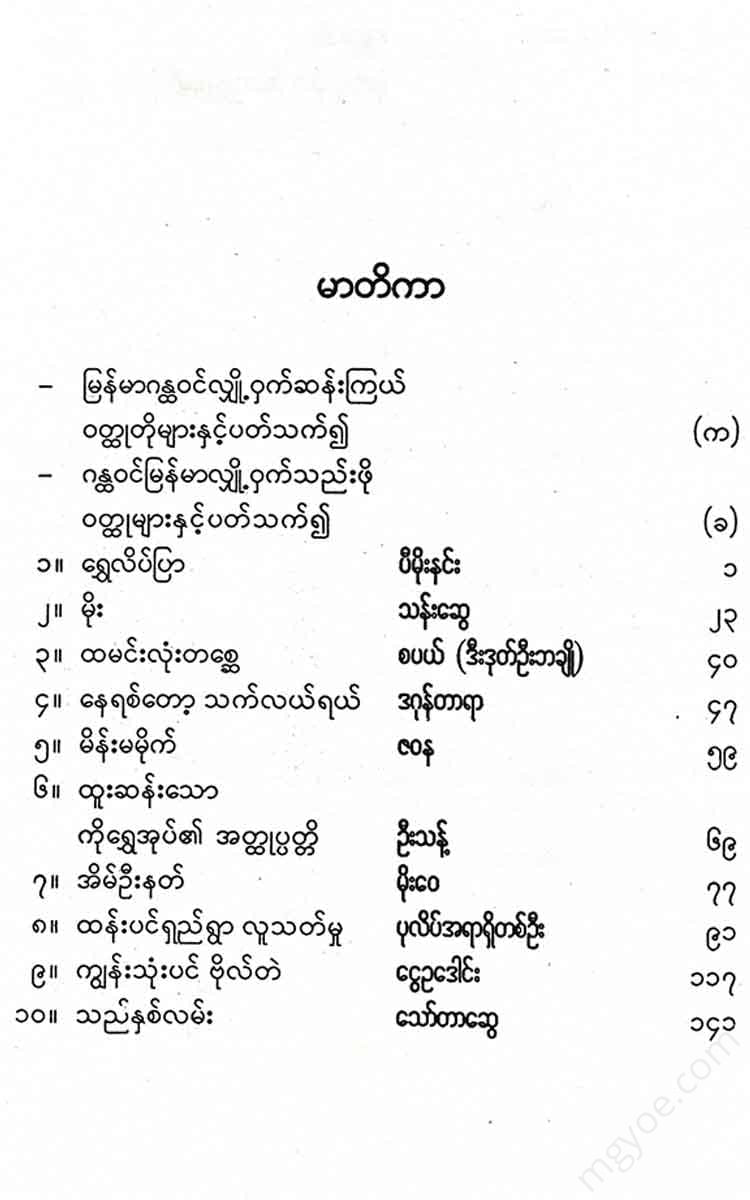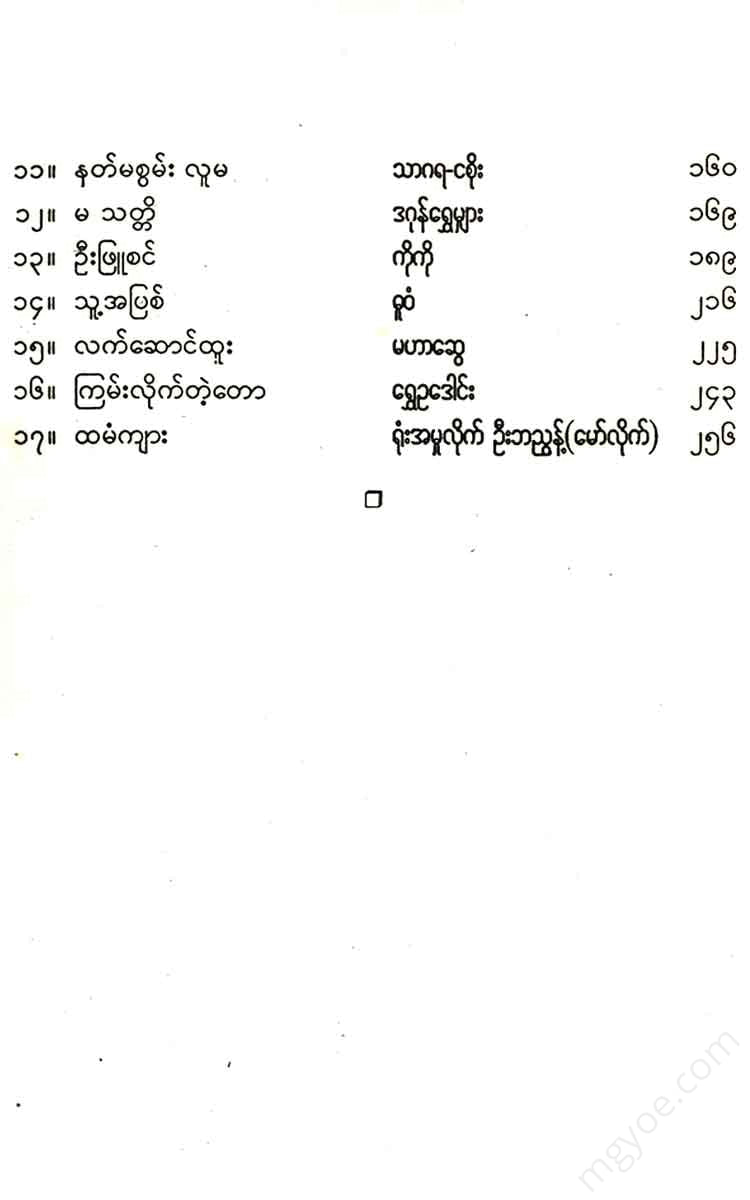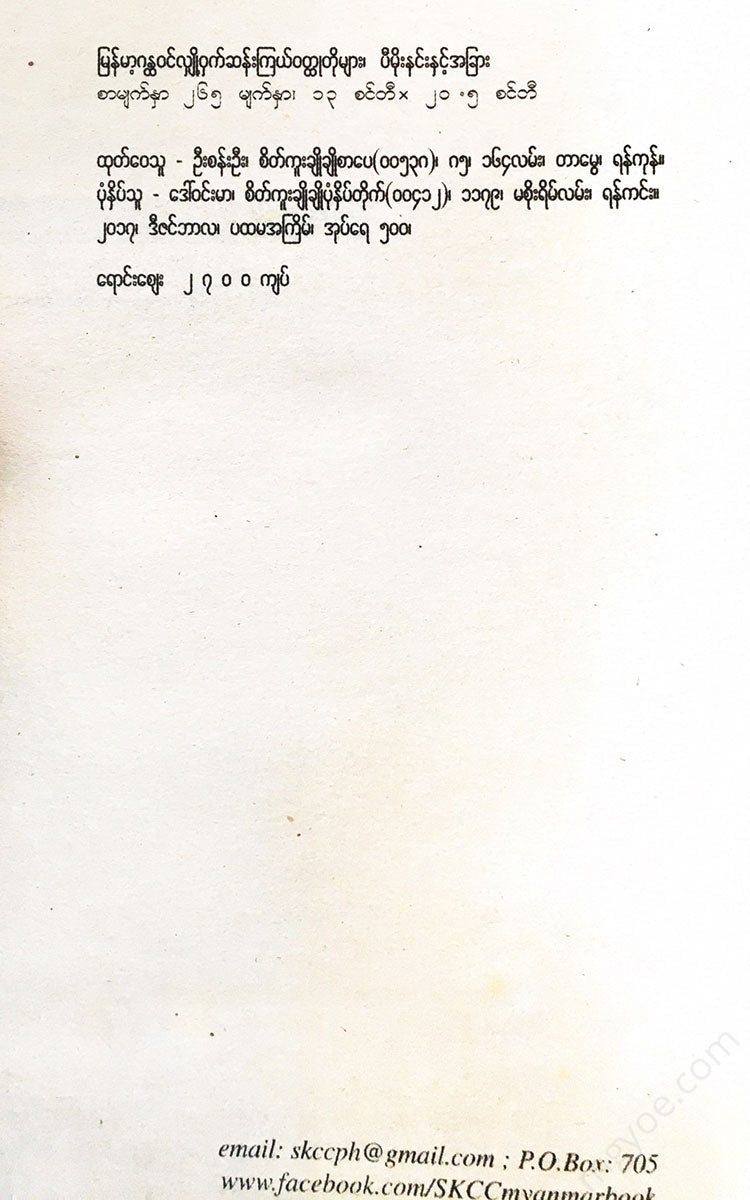စိတ်ကူးချိုချိုစာပေ
A collection of classic Burmese mystery short stories
A collection of classic Burmese mystery short stories
Couldn't load pickup availability
This is a novel written by P. Morning. It was published in the Poet's Eye Magazine, Volume 1, July 1931.
I have been very restless in the past. But the reason for my restlessness is not because my son Maung Kyaw Soe has disappeared from my sight for a while, and his mother has been following him, not far from there, and because the changing seasons, the sound of the rain and the wind, have made the fire burn again.
So, without looking at the hot, dry Yangon, which was like a cemetery full of natural resources and natural beauty, he went to a city on the Mid-Atlantic Railway. The next day, he went to a small village on the outskirts of the city with a friend in a horse-drawn carriage. Not far from a palm grove, he sat on the back floor of a palm grove in the village, not far from the ground floor, in the cool evening breeze, drinking a glass of green juice that was not as sweet as whiskey soda, and thinking about writing a story. In this plan, one thing that helped his mind to come out and spread out was the loud crackling sound from the nearby kitchen, which made his mouth wet and his lips twitch. It was a sweet, fragrant fragrance that made the tongue tingle. That fragrance, from the sound of a samsara, which was like a samsara, was transformed into a samsara,
Then I thought, "This world is a very terrible and beautiful hell, a world that exists by devouring one another, where many insects are eaten by chickens, which are eaten by humans, which are eaten by humans, which are eaten by insects, which are eaten by ants, and which are destroyed by ants. How disgusting and terrifying is this world?" While I was thinking, an old woman brought two fried chicken legs, the color of a golden coin and oil, on a small plate, placed them in front of us, and sat down next to us, saying, "In my grandmother's place, we don't have such fancy dishes as in Yangon, Maung Yin, and I. This is the best place to have them." . I said, “What could be better than this, Grandma? It’s very difficult to get such fresh food easily in Yangon. What’s more heartbreaking, Grandma? Do you make it yourself?”
Then my friend said, "Grandma is used to doing these things. Grandma doesn't do them herself. Now it's my grandson who is doing the cooking. Since a grandson is a grandmother, I have to watch him do it like a grandson. After a while, it becomes normal, sir."
The old woman had white hair, but her cheeks were not wrinkled, her skin was fresh, and she had not a single tooth broken. I thought she was at most in her fifties or sixty. When my friend asked, “How old do you think your grandmother is?” I told her my guess. The old woman said, “That’s what many people think. My grandmother is a hundred and five years old, and she hasn’t broken a single tooth. She’s three years away from turning ninety.”
Then I was very surprised.
“Grandma, you live a long life. In addition to your long life, you are originally a happy person. You die happy. What kind of position do you have in Yangon?” my friend asked. When my friend told me about the work I do at the novel newspaper, my grandmother said, “Oh, I know, you are the writer of Da Pein Yam, U Maung Gyi, teachers, teachers, and who is the mountain ranger, brother, and you write such plays. Grandma used to read a lot back then. Grandma was very fond of literature. When I was young, I used to read the great court plays, the great Nipat Daw plays, and the ten volumes of such great works. Then came the period plays. Grandma has never read the plays that are written and edited during my brother’s time. My eyesight is not as good as it used to be, and I am poor and want to be a writer. I don’t even have a reading room, brother. If I were a writer, I would like to tell you a story. Can you write?” she asked.
At that moment, “Yes, mother, the chicken that my mother said would be great if it could write a novel,” her grandson said, bringing a plate full of fried chicken. He took a bamboo skewer that was hanging on the wall, poured palm juice into a glass, quickly lifted a glass, took the chicken head, gave it to me, and took a wing and bit it. He had a stately, fair complexion, and was in his thirties or forties. He had a cheerful and cheerful appearance. He was a man of good character, and his temper was in accordance with his appearance. His parents had died and he had lived as a bachelor with his grandmother.
The old woman looked at me intently and said, "Are you really writing this? It's not a picture, it's a real story. I won't believe it."
“If it’s good, write it, Grandma. If it’s strange, it’s true, or if it’s a story, it’s good to write it. If it’s strange, listen to it, Grandma,” I said, and Grandma told me the following story. However, it’s quite difficult to write exactly what someone said in Burmese, and it’s like walking on a bumpy road for the readers, so I wrote everything I heard as it was, following the instructions of the Dharma principle in small gestures and words, and using my imagination.
* * *
(Chapter 1)
That was about nine or ten years after the second caliphate had been established and Yangon had been taken over by the British.
At that time, the Hlaing River was a very busy waterway, and Sangyul was a port town full of boats and small boats, and a bustling port town with a large number of kites. Even now, Sangyul has become a riverside forest, but from there, the railway towns of Yangon and Pyay are called forest forests, and people say that if someone from their place goes to a railway town, they go to the forest. There are many merchants, brokers, rich people, and wealthy people in that town, so the talented and intelligent people are also quite prominent, and they are famous in the surrounding villages for their bravery and courage.
In that city, a man named Maung Min Din was a prominent man, both of whom were wealthy and well-off, and he was originally full of courage and courage. He was also a handsome man, so the grandmother's grandson was like a palm juicer, and the grandmother loved him so much because he was like her brother Ko Min Din, and she allowed him to live as he pleased, following the palm juicer's example.
Maung Min Din was the one who supervised all the festivals and weddings and charity events and was sought after by the people. Any fool who wanted to show off his pride had to accept Maung Min Din's elbow and heel in the evening, in front of the young women near the wells where they came to draw water, and in the crowded market square.
